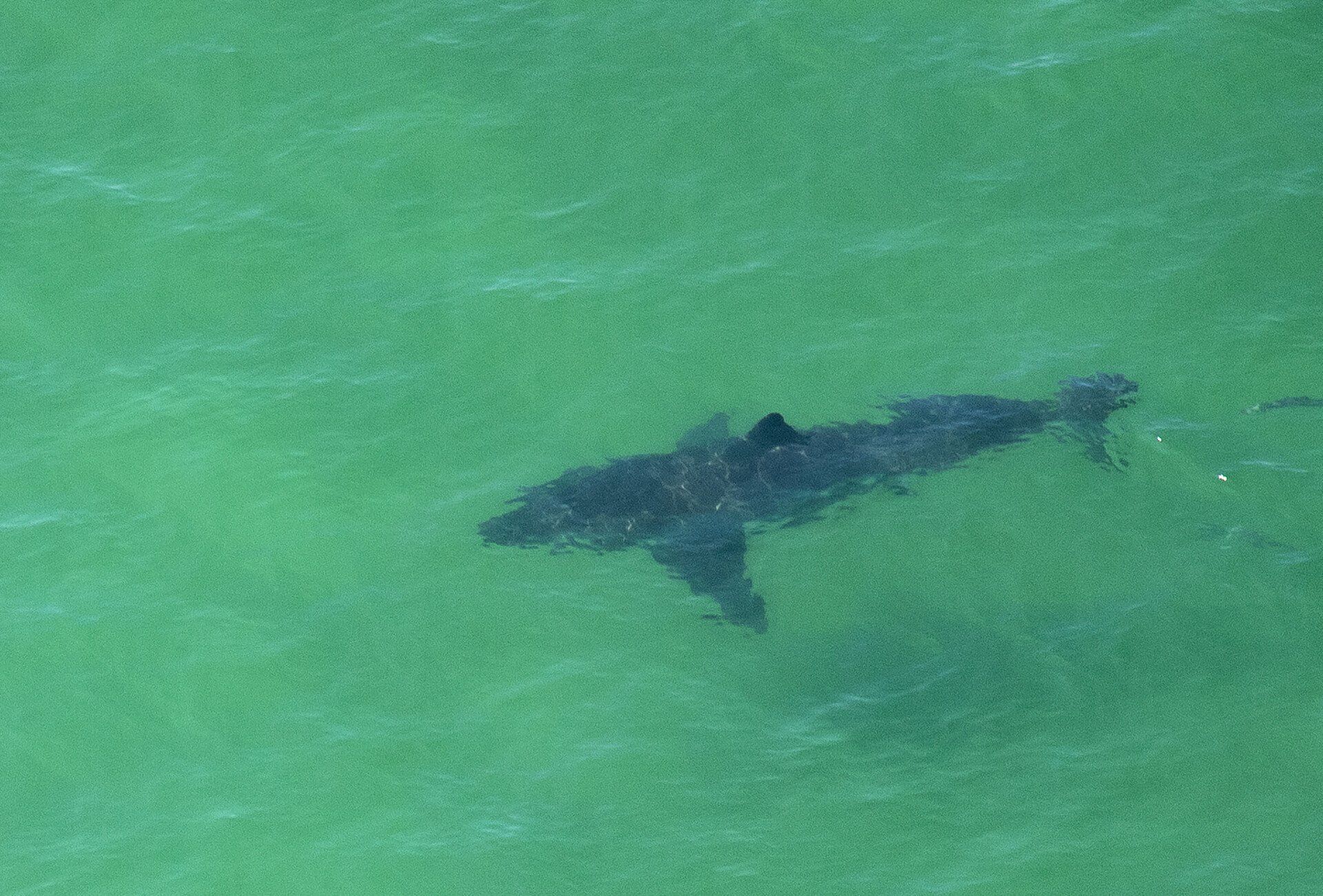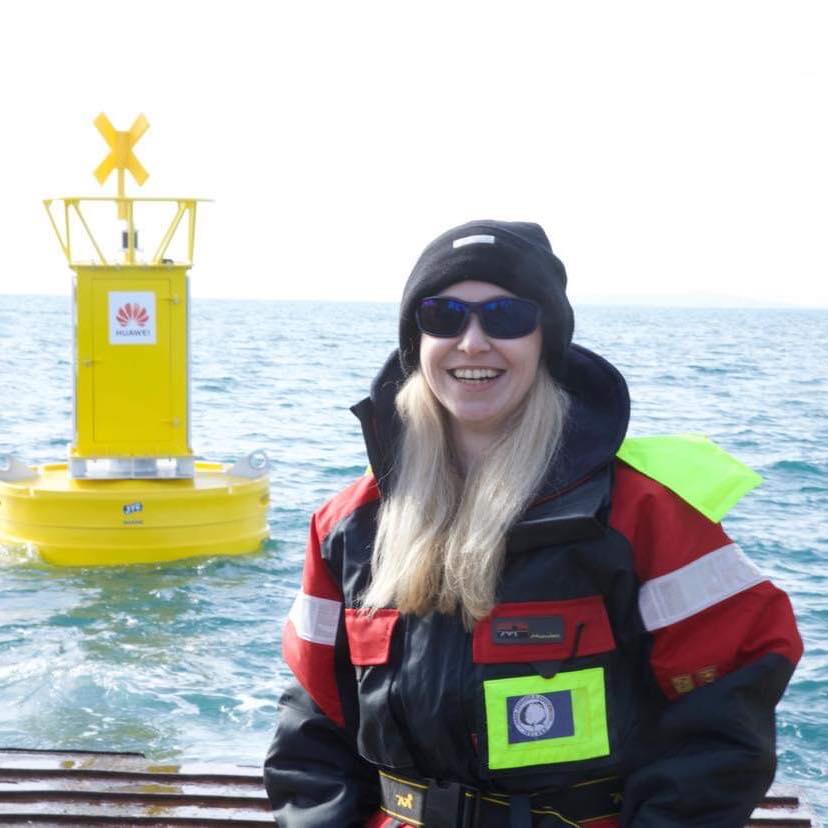DRONES USED TO TRACK GREAT-WHITE SHARK MOVEMENTS FOR IMPROVED MITIGATION STRATEGIES.
Emer Keaveney | December 23rd 2020.
Human wildlife conflicts can often result in the call for culls of vulnerable and endangered species when there is un-clear understanding of animal behaviour. Large coastal sharks are responsible for exerting predation influence across marine ecosystems, however, are vulnerable to population declines due to their long life histories, low reproductive rate and late onset of sexual maturity. Until recently, knowledge about white shark behaviour near surf zones, where shark bites usually occur, has been limited.
Scientists at the National Marine Science Centre, Southern Cross University, used drones to track great white shark (Carcharodon carcharias) movements, obtaining high-resolution tracks of 108 white sharks directly off coastal beaches on the east coast of Australia. They found that white sharks display largely predictable track trajectories and slow movement speeds along coastal beaches, which has utility in further developing non-destructive shark mitigation strategies.
Many shark species are undergoing severe population declines from direct and indirect human exploitation. Amongst the most threatened are large coastal shark species, according to the International Union for the Conservation of Nature (IUCN). There are global global conservation concerns, nonetheless, the potential for unprovoked shark bites, or “shark attacks,” presents a human-wildlife conflict dilemma that often undermines conservation efforts. Worse still, shark bites often result in reactions of calls for large scale, un-selective culls that can be far reaching and long lasting. Furthermore, common forms of cull-based mitigation can often cause negative consequences for other threatened marine wildlife caught as by-catch.
To detail localised behaviour of white sharks, the scientists used drones to obtain fine-scale movement patterns along coastal beaches on the east coast of Australia, particularly around the surf zone and general distribution size ranges. They further quantified the track metrics, including the direction, average speed, straightness, and net velocity across shark vector, as well as the potential influence of biological and environmental parameters on track metrics. The largely predictable nature of white shark movement patterns at fine scales along coastal beaches was visually illustrated. In total, 108 sharks were tracked resulting in 26.33 h of footage and associated data. The observed sharks ranged in length from 2.7 to 3.4 meters and duration of track was limited to either a), drone battery life or b) depth at which the shark was swimming. White sharks swam parallel to the beach line and in constant motion with predictable track trajectories.
Mostly, sharks were detected and followed behind the surf zone, but were occasionally recorded moving into the surf zone, particularly when large schools of fish were present. Sometimes, tracks went for a few kilometres parallel to the beach, before the sharks went back out to deeper water or into the channel waters in a estuarine bar. White sharks often exhibited curiosity, for example they opportunistically investigated fish schools and objects such as isolated patches of reef, rays, and drifting seaweed along their swim paths. In a some cases, white sharks were recorded to momentarily increase speed toward fish, often accompanied by a sharp turn, and occasionally this occurred even when no fish were apparent. There were also few notable instances where large schools of fish resulted in a circular shark track. Sharks were noted to increase swim speed and straightness in the mornings and afternoon, but no significant influence of environmental parameters were determined.
For the first time, insight into the localised movement behaviour of one of the world's most fearsome predators, the white shark, along coastal beaches has been provided using drones.















